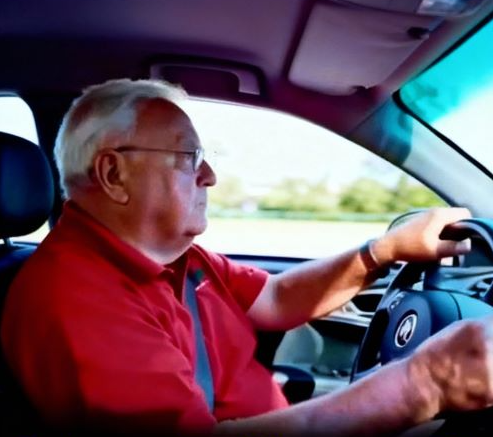Governments and road-safety organizations have wrestled with the same question for years, and now it’s finally gaining real traction: how can we help older drivers remain safe, confident, and independent without making them feel punished for simply getting older? People are living longer, staying active longer, and relying on cars well into their seventies and eighties. Age alone does not automatically make someone dangerous on the road. But bodies change, reflexes slow, eyesight shifts, and overall awareness may decline. Ignoring these realities helps no one; facing them honestly can make a critical difference.
The recent focus comes in the wake of a troubling incident in La Rochelle. A normally careful, attentive elderly driver became disoriented and entered a roadway in the wrong direction, injuring several young cyclists. It was frightening for all involved and immediately reignited public debate.
Experts argue that rather than assigning blame, this incident should prompt a broader question: how can older drivers receive the tools, knowledge, and support they need to continue driving safely? The goal isn’t punishment or restriction—it’s reassurance, for both the drivers themselves and everyone sharing the roads.
Statistics from France’s Road Safety Authority are telling: drivers over 75 and those aged 18 to 24 have roughly the same accident rate, though for very different reasons. Younger drivers often take risks, drive distracted, or misjudge situations. Older drivers face changes they cannot control, like slower reaction times, mobility limitations, or difficulty seeing at night. Both groups can benefit from guidance and structured support.
Currently, France’s system is largely hands-off. A standard B license is valid for life unless a significant medical issue is reported. This is convenient, but it leaves gaps. Not every driver notices their own decline, admits difficulty, or has family members willing to raise the topic.
Other European countries have started to tackle this differently. Italy requires medical checks every five years starting at age 70. Germany offers voluntary examinations to help older adults assess their fitness to drive, without the fear of automatically losing their license. These programs are not about taking independence away—they are designed to identify issues early, reinforce confidence, and enhance safety for everyone.
France is now moving in that direction: toward supportive oversight rather than restrictive measures.
Several proposals are under discussion. One is periodic health evaluations around age 70 or 75. These evaluations wouldn’t be invasive or meant to “fail” anyone; they’d serve as checkpoints to update vision prescriptions, refresh safe-driving skills, or catch early warning signs that could affect reaction times or night driving.
Another idea involves voluntary refresher courses, similar to continuing education programs, allowing older drivers to stay current on traffic rules, new car technologies, and changes to the road network—like roundabouts, cycling lanes, and electric scooters. Even basic community lectures, local driving-school workshops, or online guides could help. The goal is to make staying safe feel like staying informed, not monitored.
Families would benefit too. Conversations about aging and driving are emotionally complex—how do you balance respect, independence, and safety? A clear, structured framework can make these discussions less personal and more practical, providing guidance without embarrassment or conflict.
These discussions are built on a simple principle: independence matters. Driving is freedom, dignity, and the ability to choose when and where to go. No one wants to take that away—but safety must keep pace with independence.
Communities also gain when these conversations happen proactively rather than after an accident. Older drivers should feel confident stepping into their cars, knowing they have the awareness, reflexes, and skills they need. Cyclists and pedestrians should feel safe knowing drivers—young or old—are well-prepared.
The La Rochelle incident was more than a crash; it was a warning. Even one moment of confusion can have lasting consequences. But it also opened the door to a balanced conversation centered on support, not blame.
As France’s population continues to age, these evolving guidelines could be vital in protecting both independence and safety. Aging isn’t a problem—it’s a reality that deserves thoughtful, practical solutions.
Encouraging older drivers to check in with themselves is not a burden; it’s an act of respect—for their freedom, their safety, and the lives of everyone on the road.
The upcoming updates won’t be about taking keys away. They will ensure that drivers—whether 18, 48, or 78—have the confidence, awareness, and skills to drive safely.
A little guidance today can prevent major problems tomorrow. Done correctly, these new measures won’t limit independence—they’ll preserve it.
